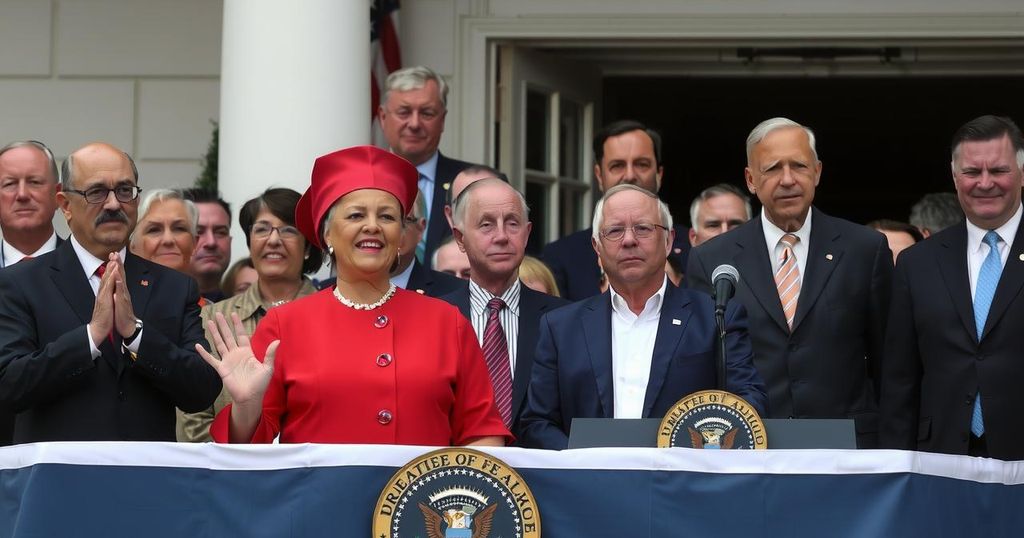Chinese President Xi Jinping will likely not attend the Trump inauguration despite an invitation, though the Chinese ambassador will. This marks an unusual occurrence as no foreign leaders have attended past U.S. presidential inaugurations. Trump’s administration has both praised and criticized China, maintaining a complex relationship with the country, especially in light of trade and security issues.
Chinese President Xi Jinping is not anticipated to attend the forthcoming inauguration of President-elect Donald Trump this January, despite receiving an invitation. Sources familiar with the situation indicated that while the Chinese ambassador to the United States will represent China at the event, Xi’s presence is unlikely. This invitation marks an unusual gesture, as historically, no foreign leaders have ever attended a U.S. presidential inauguration, and further emphasizes Trump’s approach to fostering dialogue with not only allied nations but also with competitors and adversaries like China.
While Trump has publicly expressed admiration for Xi Jinping on several occasions, he has also been a vocal critic of China’s trade practices and domestic policies. Following his election, Trump committed to increasing tariffs on Chinese goods, indicating a tough stance on trade negotiations. In a previous discussion with podcaster Joe Rogan, Trump acknowledged Xi’s authoritative governance of a vast population, stating, “He controls 1.4 billion people with an iron fist. I mean, he’s a brilliant guy, whether you like it or not.” Furthermore, despite this complexity, some of Trump’s appointed officials, including Secretary of State nominee Marco Rubio and national security adviser Mike Waltz, have openly expressed their criticisms of the Chinese government.
Additionally, tensions have been exacerbated by U.S. intelligence assessments indicating that China was responsible for a significant hacking incident that affected multiple U.S. telecommunication firms. Such revelations have only heightened scrutiny of China within U.S. political discourse. Trump’s invitation to foreign leaders highlights his intent to establish various diplomatic connections, as he has already engaged with heads of state from Canada, Argentina, and France since his election victory.
Trump’s spokesperson, Karoline Leavitt, indicated, “This is an example of President Trump creating an open dialogue with leaders of countries that are not just allies but our adversaries and our competitors too.” While waiting for responses from both the Chinese government and the Trump transition team, it is noted that while many ambassadors will be present for the inauguration on January 20, the absence of Xi Jinping would be significant due to the lack of historical precedent for foreign leadership at such events.
Inauguration ceremonies for U.S. presidents are typically attended by various dignitaries, including diplomats and ambassadors; however, historically, they have not included foreign heads of state. The unexpected invitation to Xi Jinping by Donald Trump illustrates an international diplomacy initiative that seeks to redefine U.S. relations with adversaries. Trump’s administration has taken a distinctive stance on China, punctuated by criticisms of its governance alongside a recognition of Xi’s leadership capabilities, indicating a nuanced diplomatic approach that intertwines confrontation with dialogue. As the geopolitical landscape changes, the implication of such diplomatic gestures can have lasting effects on international relations, particularly in the context of recent tensions, including cybersecurity issues and trade disputes.
In summary, while President Xi Jinping is expected to refrain from attending President-elect Donald Trump’s inauguration despite an invitation, this event underscores Trump’s unconventional diplomatic outreach. The decision reflects ongoing complexities in U.S.-China relations, characterized by both admiration and critique towards Xi’s leadership. The history of past inaugurations reinforces the significance of this development, revealing the potential for dialogue in a time of rising tensions between the two nations. The coming inauguration will serve as an important moment in evaluating the future diplomatic trajectory under the new administration.
Original Source: www.bbc.com






